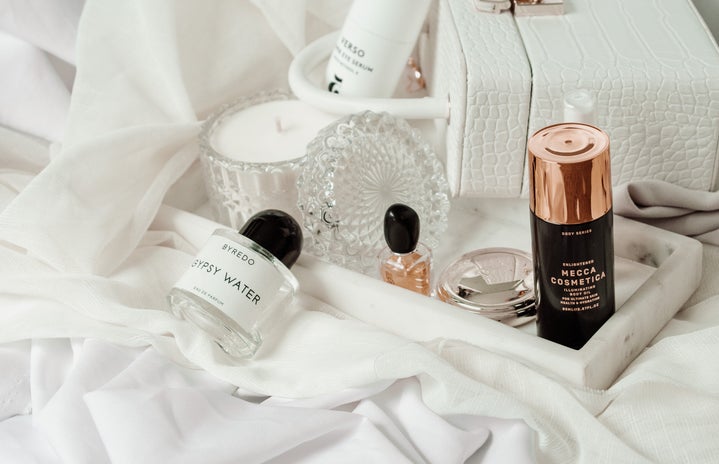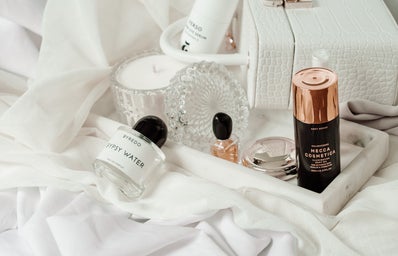Essential life hack time. You don’t have to waste your money on products that won’t necessarily work; open your fridge and let Mother Nature preen you pretty.
Tips to apply to all these treatments:
● With skin, begin by opening pores by putting a warm flannel over your face for a few minutes. After treatment, rinse your face with cool water to close pores.
● With hair, always do a final rinse with cool water to close the cuticle of your hair, making it shinier and less prone to frizz.
Let’s go!
Olive oil and egg hair mask
Sounds gross? I admit, it’s not the nicest experience ever, but this is a brilliantly nourishing solution for damaged ends that have seen too many hours of heat styling and colouring.
● What you need: 2 eggs, two tablespoons of olive oil, warm water
● Whisk the eggs and add the oil to them in a small bowl. Dilute with a small cup of warm water. Apply to hair over the sink, either straight from the bowl or with a brush. Massage it into your scalp. Leave on for 15 minutes then rinse off.
Milk as a toner
For oily skin, use skimmed milk, but whole milk works best for dry skin. Apply to a cotton wool pad and sweep all over a freshly cleansed face.
Honey skin saver
Honey is so clever. Prized for its antibacterial and healing properties, it creates a great mask for your skin by itself. You can also:
● Add half a tablespoon of cinnamon to a few tablespoons of honey and mix, apply to skin for 10 minutes then rinse
● Cinnamon can irritate sensitive skin so do a patch test on your hand first.
● ALTERNATIVELY Mix honey with yogurt for an ideal mask for dry skin.
● OR Mix honey with lemon juice for a mask that helps to lighten acne scars and marks
Garlic spot treatment
Apply a small slice of garlic to a spot for a few seconds (too long and it will burn, so take care.) Leave for 10 minutes, then rinse with cool water. It works!
Coconut Oil – for everything!
Ok, so it may not be in your cupboard right now, but I hope I can inspire you to invest in this miracle. It’s also a healthy alternative to normal cooking oil!
● Body- apply after your shower/bath for super soft skin that smells delicious. If you have dry skin, you can apply it to your face too as a daily moisturiser.
● Lips- coconut oil in solid form can be applied just like a lip balm.
● Tamer- rub a little between fingers to treat flyaways.
● Scarring- coconut oil can be used to reduce the appearance of acne scarring.
● Shaving cream- your legs will feel like silk. Or dolphins. Or dolphins made of silk. This is a brilliant natural (and in the long term, cheaper) alternative to shaving cream.
Remember, these treatments are just the same as shop-bought beauty products: everyone’s skin is different, but finding a homemade treatment that works for you will save you money and time in the long run. So have fun!
Edited by Caroline Chan
Image sources:

